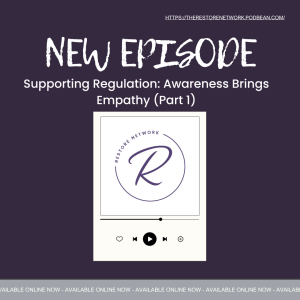
Friday Jan 05, 2024
Supporting Regulation: Awareness Brings Empathy (Part 1)
In part 1 of a 8 part series, Ashley Bennett, our Director of Trauma Informed Care, dives into a deeper understanding of how our child's nervous system was built through their in-utero experience, their birth experience, and their first year of life experience. She compares an infant's optimal experience with the reality for most of our children who've experienced complex developmental harm. Why do a lot of our kids go from 0 to 60 fast, stay there longer, and even experience the protective mode of dissociation? Take a listen!
The Restore Network exists to change the culture of foster care and equip God's people to meet the needs of vulnerable children and youth. The children we serve have experienced complex developmental trauma and their experiences have changed their brains, bodies, beliefs, and behaviors. These resources are created to equip caregivers, volunteers, child welfare professionals, and our church partners to navigate the joys and complexities of caring for these vulnerable children. The resources we offer are based on the principles of Trust Based Relational Intervention created by the Karyn Purvis Institute of Child Development at Texas Christian University as well as other areas of attachment theory and relational neuroscience which we believe line up with how God created our brain and bodies for relationship and the design plan for human flourishing.
No comments yet. Be the first to say something!